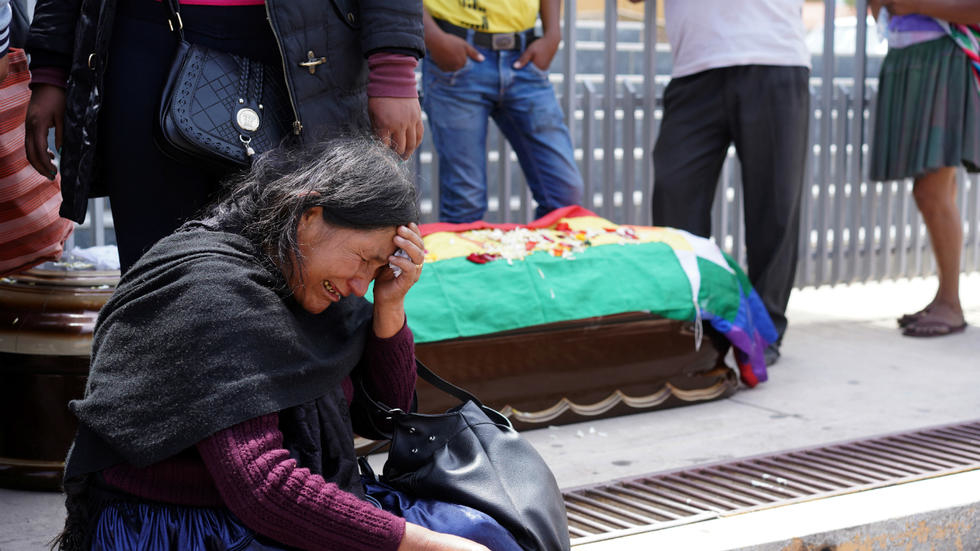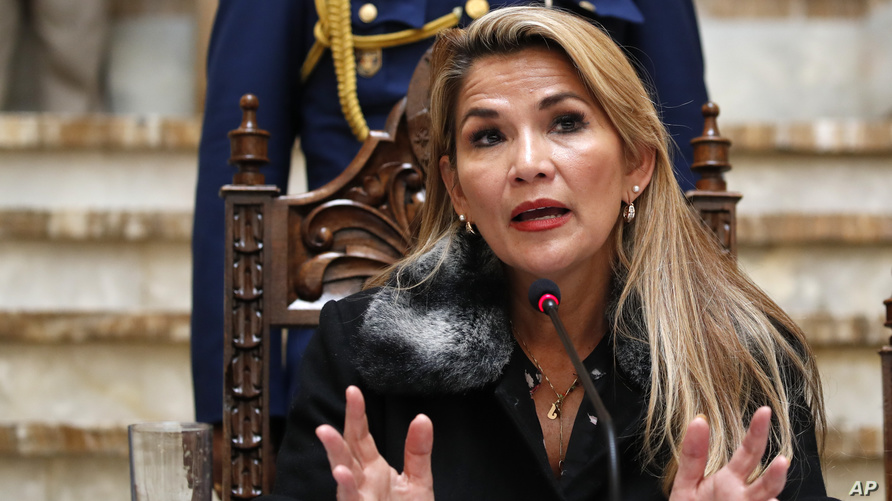RIO DE JANEIRO, BRAZIL – The severe political crisis that Bolivia has been going through since the elections on October 20th has aroused great concern in the Office of the UN High Commissioner for Human Rights over the “repressive actions” by the security forces.

The protests that unsettle the country have left 23 dead, according to the latest assessment of the Inter-American Commission on Human Rights (IACHR). There have been riots and acts of vandalism, but there have also been several instances of repression.
“While the first deaths occurred as a result of violent clashes between rival demonstrators, the most recent ones seem to be the result of unnecessary and disproportionate use of force by police and military personnel,” said Michelle Bachelet, high commissioner, in a statement on Saturday.
On the other hand, the UN’s concern has not prevented the Bolivian interim government from issuing a decree on Friday, authorizing the action of the Armed Forces to control the country’s order, while at the same time exempting military and police authorities from criminal liability. The order was authorized on the same day that nine people were killed during a protest against the resignation of Evo Morales.
The statement comes after harsh clashes between demonstrators and police and military personnel – who after this week are acting together in an effort to stop the demonstrations – that resulted in the death of at least nine coca growers in the province of Chapare. The victims died, says Bachelet, “allegedly as the result of the use of lethal ammunition by the security forces”.
The clashes occurred as the coca growers were trying to cross a bridge to reach the city of Cochabamba. “I am truly concerned that the situation in Bolivia could get out of control if the authorities do not deal with it carefully, in accordance with the international rules and standards that govern the use of force and with full respect for human rights,” she said.
Following the resignation of former President Evo Morales, who is in exile in Mexico, Jeanine Áñez took office on Tuesday. The interim president appointed a provisional government tasked to “pacify” the country and call for elections as soon as possible. While the date of the next elections has not yet been announced, the protests have not diminished.
Neither in La Paz, where the Government Palace is shielded by the Army, nor in Cochabamba and the coca producing regions.

Settlement of the conflict
“In a situation like this, repressive actions from the authorities will simply increase this anger even more, and may endanger any possible path of dialogue,” says Bachelet.
The interim executive and the Movement for Socialism (MAS), which supported Morales for almost 14 years in power, attempted some rapprochement this week, although without substantial progress so far. In fact, Áñez’s inauguration was boycotted by the MAS in Parliament, where the party still holds an absolute majority.
“This situation will not be resolved by force and repression. All sectors have the right to have their voices heard, a fundamental matter for democracy. I ask all the players, including the demonstrators, to renounce violence in order to reach a peaceful solution to the current crisis,” said the high commissioner. This week in the municipality of El Alto, near La Paz, the demonstrators were joined by violent groups that blocked their streets and wreaked havoc.
The interim government blames them for an attempt to destabilize the country after the resignation of Evo Morales. In this context, UN Secretary General Antonio Guterres asked diplomat Jean Arnault to travel to Bolivia to establish contacts with all parties and offer the organization’s support in resolving this conflict. “We held consultations with several parties before the appointment and it was clear that this would be a positive sign, so the secretary general made the decision,” said his spokesman.
Áñez’s executive is fiercely opposed to Morales and his party. The president, who took office on Tuesday without a parliamentary majority, argues that to call transparent and reliable elections, some institutions must first be renewed, starting with the Supreme Electoral Court, in the eye of the hurricane because of accusations of fraud after the elections held on October 20th, certified as faulty by the audit published on Sunday by the Organization of American States (OAS), which recommended its repetition.
Source: El País

